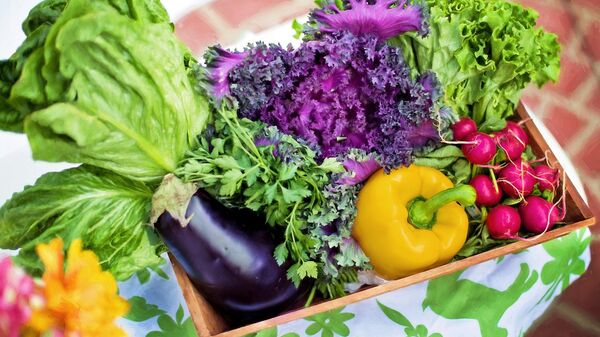Organic food is significantly worse for the climate than conventionally produced foods, a new study published in the scientific journal Nature has shown.
Owing to the new measurements, the research team concluded that this area is key to climate impact, which is a major disadvantage of organic food grown without fertiliser or pesticides. On a global scale, organic farming means that more forest will be chopped down to free up farmland. In turn, less forest yields more carbon dioxide in the atmosphere.
"We have found that organic food has a greater climate impact than conventional food. This is because organic food requires more area, more land for the same amount of food to be grown", Stefan Wirsenius, associate professor at the Department of Physical Resource Theory at Chalmers University in Gothenburg and one of four researchers behind the new international study, told Swedish Radio.
Thus, organic Swedish peas yield an about 50 percent higher climate impact compared with those grown conventionally, the study concluded. For organic wheat, the difference in footprint was even higher, almost 70 percent.
"There is a big difference in crops. Almost twice as much land is used to grow the same amount of ecological wheat", Wirsenius commented.
READ MORE: PETA Mocked For Demanding End to ‘Speciesist' Language (PHOTOS)
The same principle is applicable for virtually all agricultural branches. For instance, organic beef has a greater impact than meat from cows fed with feed grown with the help of fertiliser and pesticides.
While admitting that organic farming, indeed, has many benefits, such as animal welfare, Wirsenius contested that it would be a fundamentally wrong idea to claim that organic is better climate-wise. On the contrary, organic foods are much more detrimental to the environment.
"I believe it is important that this aspect enters the discussion about organic production as well. Sweden's current goal is to increase the share of organic farmland to 30 percent. It may be important, but it should be remembered that this comes with a backside", Wirsenius said.
According to him, increasing the share of organic foods will contribute to global deforestation elsewhere in the world; an aspect he argued must be discussed more clearly.
READ MORE: Swedish Philosopher Bashed for Demanding 'Global Climate Dictatorship'
Meanwhile, growth in the global organic products market has continued in 2018, with North America consolidating its leading position, its regional organic market projected to surpass $50 billion for the first time.
About 83 percent of US families now buy organic products. Organic foods comprise 5 percent of retail food sales across the US. Consumers tend to prefer organic alternatives as they are considered healthier. The influence of the millennial generation, which in some countries accounts for half of organic sales, is also noticeable, the magazine Food and Drink reported.


